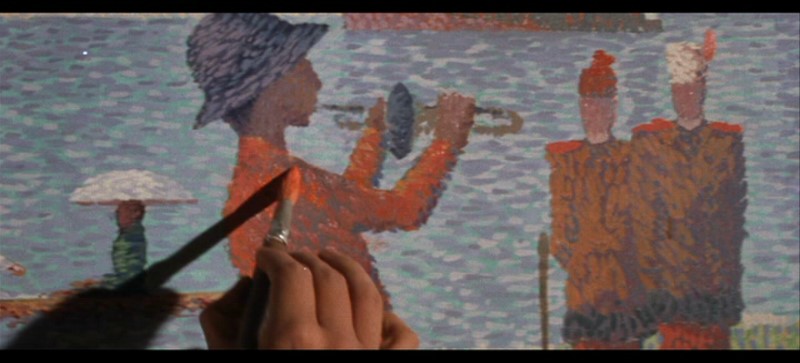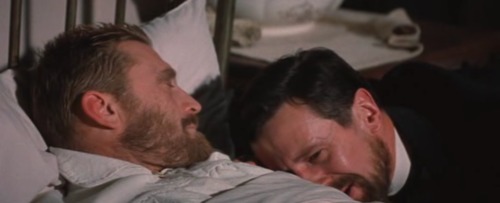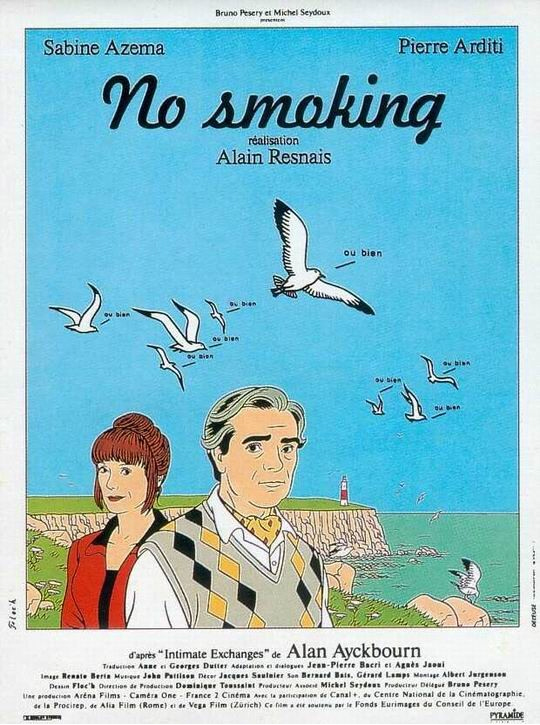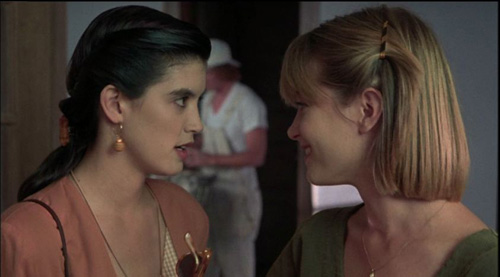From the Chicago Reader (March 12, 1993). — J.R.
VAN GOGH
*** (A must-see)
Directed and written by Maurice Pialat
With Jacques Dutronc, Alexandra London, Gerard Sety, Bernard le Coq, Corinne Boudon, and Elsa Zylberstein.
Consider the following two scenarios:
(1) In May 1890, Vincent van Gogh, missing one ear, arrives at Auvers-sur-Oise and meets Dr. Gachet — an avid art collector and fan of the Impressionists contacted by Vincent’s brother Theo — who advises the painter not to worry about his nervous attacks and to concentrate on his work. Taking a room at the Ravoux inn, Vincent follows the good doctor’s advice, but his alienation from others continues to torment him; during Bastille Day, when everyone else is celebrating outside, he sits alone inside, in extreme anguish, at a cafe table. While painting a field he is attacked by crows, and he agitatedly adds a few of these birds to his canvas before pulling out a revolver and shooting himself. He dies shortly afterward, his faithful brother at his bedside.
(2) In May 1890, Vincent van Gogh, both ears intact, arrives at Auvers-sur-Oise, takes a room at the Ravoux inn, and meets Dr. Gachet — an avid art collector and fan of the Impressionists contacted by Vincent’s brother Theo — who advises the painter not to worry about his nervous attacks and to concentrate on his work.








